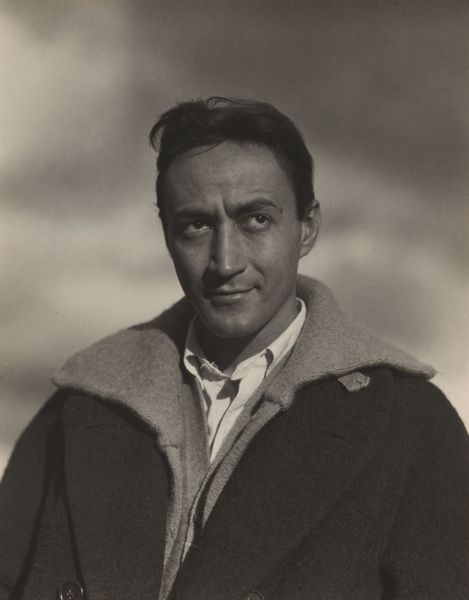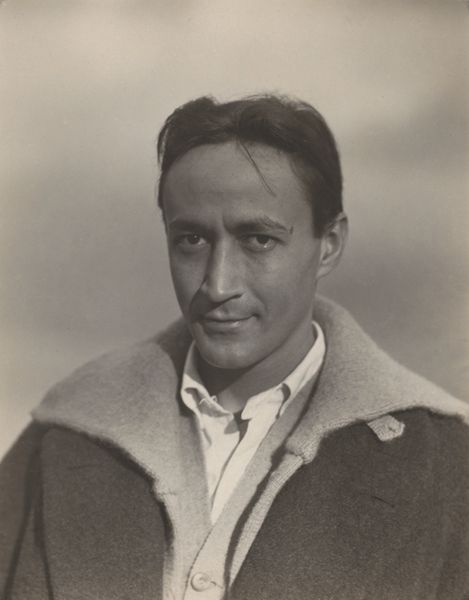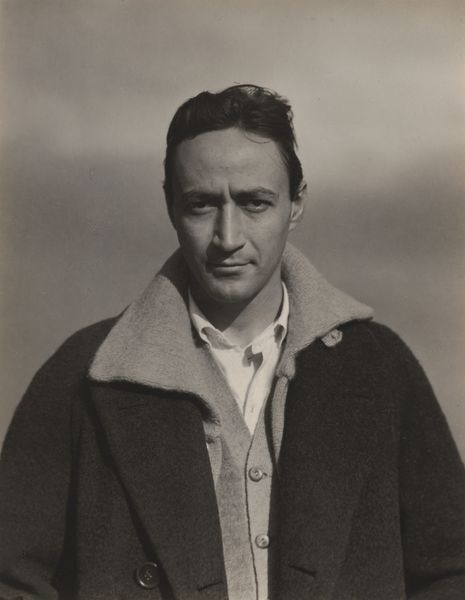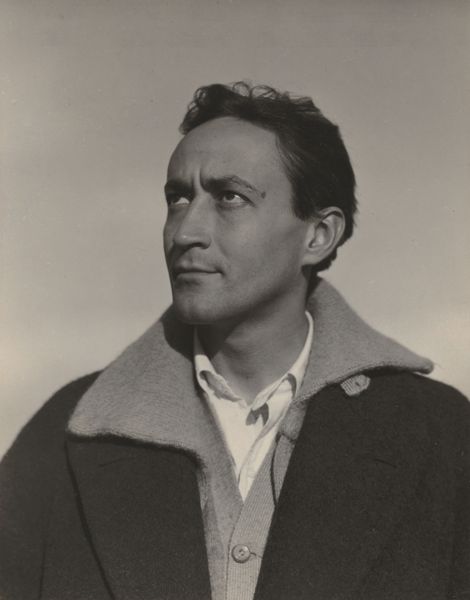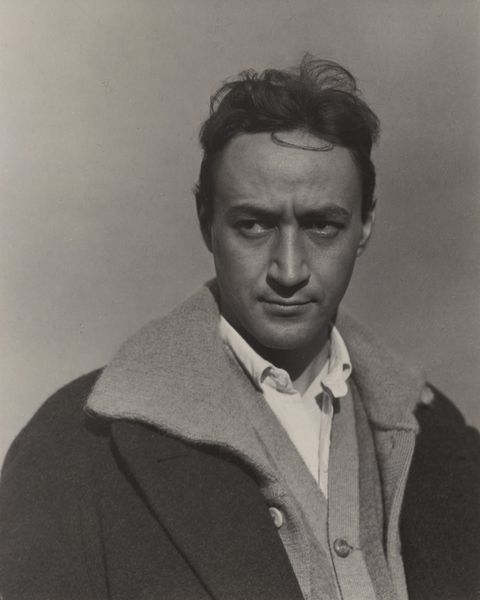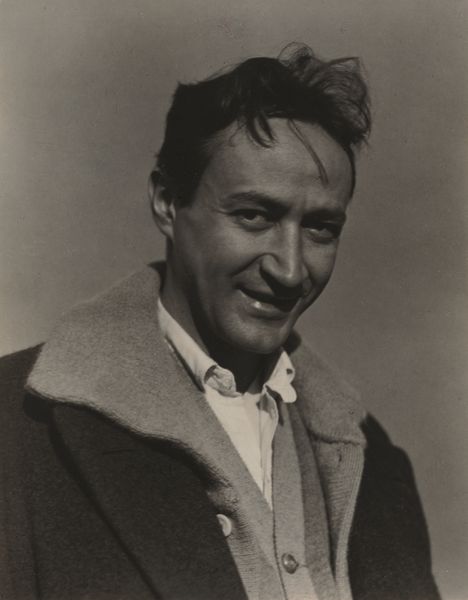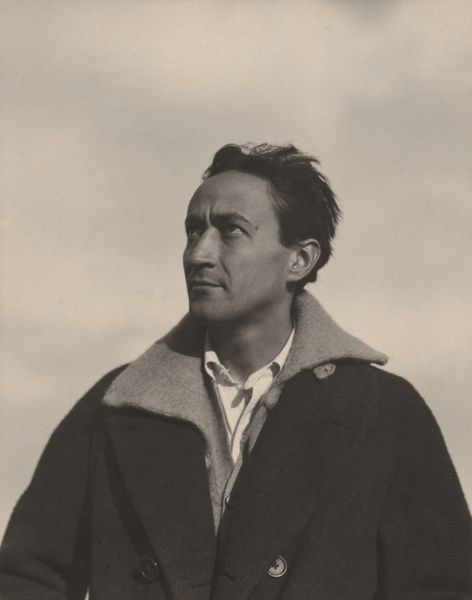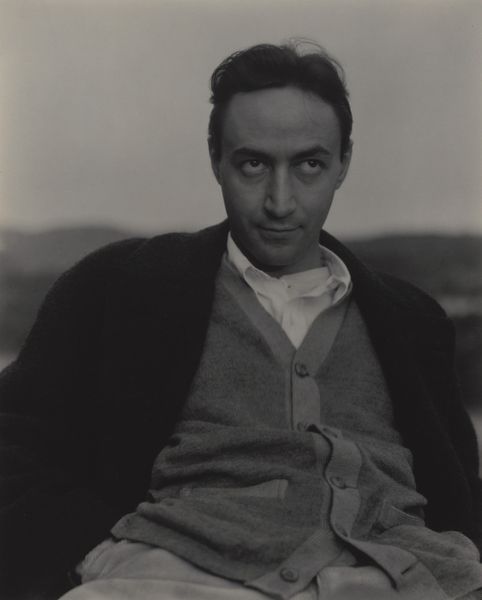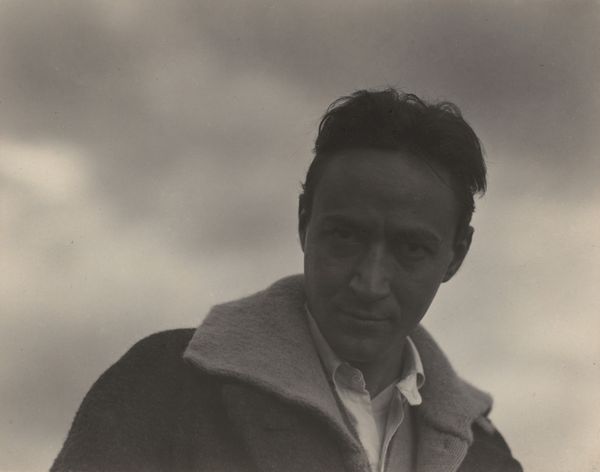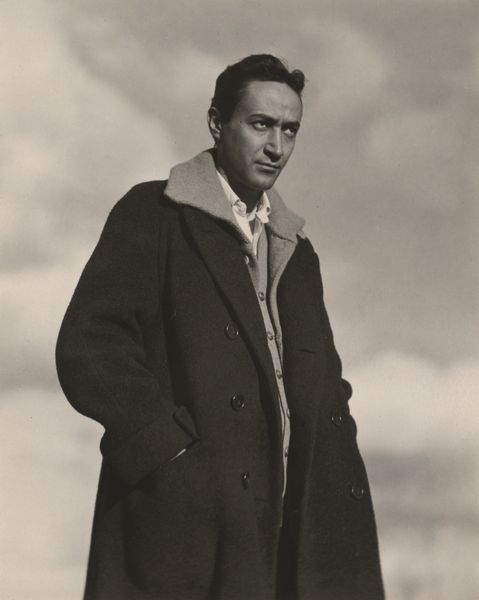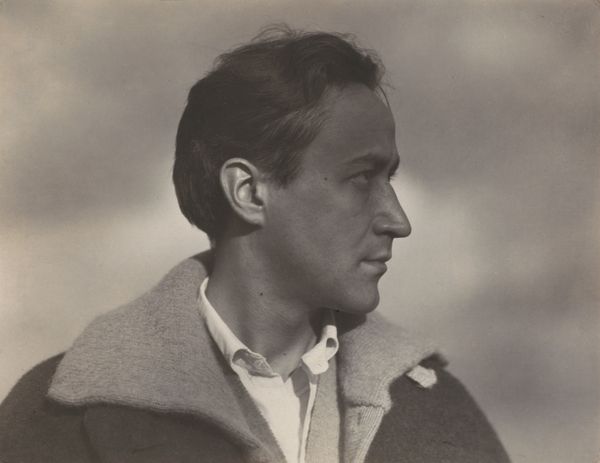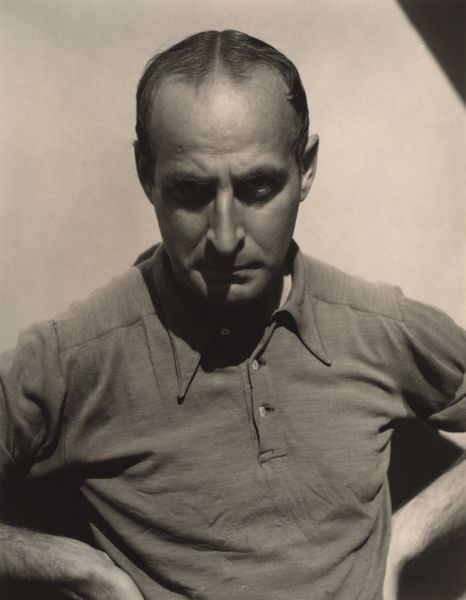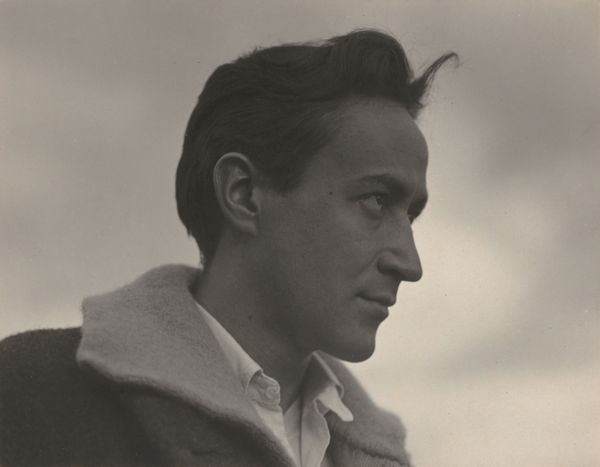
photography, gelatin-silver-print
#
portrait
#
photo restoration
#
low key portrait
#
portrait image
#
pictorialism
#
portrait
#
portrait subject
#
harlem-renaissance
#
black and white format
#
photography
#
portrait reference
#
single portrait
#
gelatin-silver-print
#
portrait drawing
#
realism
#
celebrity portrait
Dimensions: sheet (trimmed to image): 11.6 × 9.2 cm (4 9/16 × 3 5/8 in.) mount: 34.2 × 27.2 cm (13 7/16 × 10 11/16 in.)
Copyright: National Gallery of Art: CC0 1.0
Editor: Here we have Alfred Stieglitz's photograph of Jean Toomer from 1925, rendered in gelatin silver. The lighting creates such a contemplative mood. What cultural elements were at play during this portrait sitting? Curator: That's a great observation! Think about the Harlem Renaissance context. Stieglitz, a white photographer, capturing Toomer, a writer exploring complex themes of racial identity. The photograph itself becomes a document within that socio-political landscape, doesn't it? How do you see this tension manifesting in the image itself? Editor: I see what you mean. Perhaps it’s Toomer’s gaze; there's a sense of self-awareness but also a kind of…guardedness? Curator: Precisely! And consider Stieglitz's established role as a champion of modern art. His photographs, often exhibited in his own galleries, helped shape the public perception of artists like Toomer. The choice to portray Toomer in this style, with the soft focus characteristic of pictorialism, subtly impacts how the viewer engages with Toomer's identity and artistic voice. The portrait exists at a unique intersection: It aims to offer Toomer visibility but under parameters decided by the photographer's status, influence, and style. Does that shift how you understand its reception? Editor: It certainly does! It makes me question whose narrative is being foregrounded: the sitter, the photographer, or something in between. Curator: Exactly! And that's the ongoing power of a portrait like this – prompting us to analyze the complex interplay between artist, subject, and the wider cultural forces at work. Editor: I hadn't considered the role Stieglitz’s gallery played in shaping public perceptions. Thanks, it is a valuable perspective. Curator: My pleasure, and a great way to learn.
Comments
No comments
Be the first to comment and join the conversation on the ultimate creative platform.
